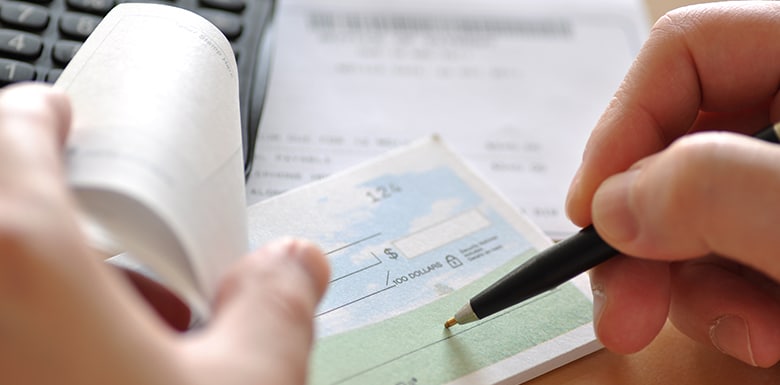The Real Cost of Passing a Bad Check

Writing a check with insufficient funds in your bank account can happen to anyone. However, when you intentionally write a check that you know will bounce, you may face serious consequences in Pennsylvania.
The real costs of passing a bad check expand far beyond simply repaying the person or company whom you attempted to defraud. You could also have legal fees, court costs, criminal fines, and other expenses because of the bad check.
If you find yourself facing criminal penalties for passing a bad check in Pittsburgh, your best option is to consult an experienced defense attorney.
What Is a Bad Check?
According to Pennsylvania law, a bad check is any check or similar sight order for payment not honored by the drawee – your bank, credit union, or other financial institution. If you know that a check will not be honored by your bank and you write it anyway, you can be held liable for writing a bad check.
The court assumes that you are passing a bad check if:
- You did not have an account with the bank at the time you wrote the check
- You receive a returned check stamped “account closed,” “no such account,” or “counterfeit.”
- You receive notice of a bad check from your bank but failed to make good on payment within 10 days of receiving notice
- You receive a returned check stamped with “NSF” or “insufficient funds.”
Bad Checks Carry a High Cost
Reimbursement to Payee
When a bad check catches up with you, you will pay more than what you originally owed. However, you still need to reimburse the payee – the person or party who got the bad check – plus interest and service charges to the payee’s bank or financial institution.
Legal Fees
You may be worried that legal fees will only add to your costs in a bad check case. However, an experienced criminal defense attorney on your side may be able to negotiate your charges or even get them dismissed. This saves you significant money in the long run.
Criminal Record & Employment
Employers typically run a background check, especially if you are applying for a high-paying job. It might be difficult to get a good job when potential employers see that you were convicted for writing a bad check. They may be reluctant to trust you, especially if the job involves handling money. A criminal record might severely limit your ability to land a job.
Criminal Penalties & Fines for Passing Bad Checks
When you knowingly pass a bad check, you could pay more than a fee to your bank. You are facing jail time, fines, and even prison as a convicted felon. The level of penalty that you face depends on the amount of the check that you fraudulently write.
- Checks for less than $200 – This is a summary offense, and you may be sentenced to up to 90 days in jail and/or a $300 fine.
- Checks between $200 and $1,000 – This is a third-degree misdemeanor, and you may be sentenced to up to one year in jail and a fine of up to $2,500.
- Checks between $1,000 and $75,000 – This is a first-degree misdemeanor, and you may be sentenced to up to five years in prison and a fine of up to $5,000.
- Checks for more than $75,000 – This is a third-degree felony, and you may face up to seven years in prison and a fine of up to $15,000.
Suppose you are convicted of more than one bad check offense or subsequent offenses within five years, regardless of the check amount. In that case, you may be charged with a third-degree felony with the corresponding penalties mentioned above.
Bad Check Charges? We Can Help
Our attorneys are skilled negotiators and litigators who may be able to help you avoid conviction, imprisonment, and costly fees.
If you were arrested for passing a bad check, we could help. We want to hear your story, examine your case, and help you make the best choice for your future.
Call Worgul, Sarna & Ness, Criminal Defense Attorneys, LLC, for a free consultation. Call us today at (412) 281-2146 or use our online contact form to reach out.